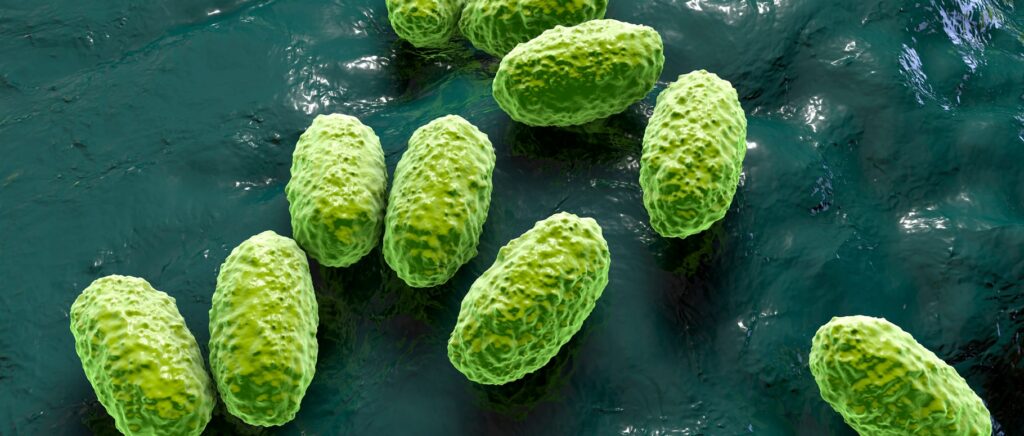
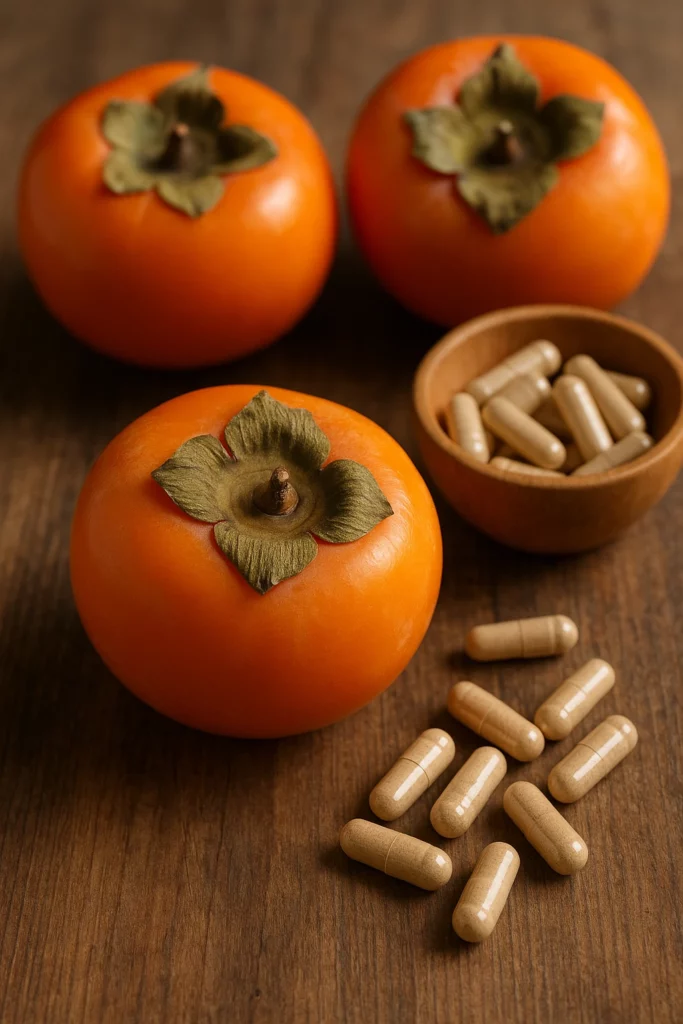
Introduction: a new role for the known fruit
Persimmons have long been known as a source of vitamins and trace elements, but thanks to advances in modern nutraceuticals, we have taken a fresh look at the bioactive components of this fruit.
Of particular interest are persimmon tannins and specific polyphenols, which show potential in detoxifying the body, normalizing fat metabolism and supporting the microbiome.
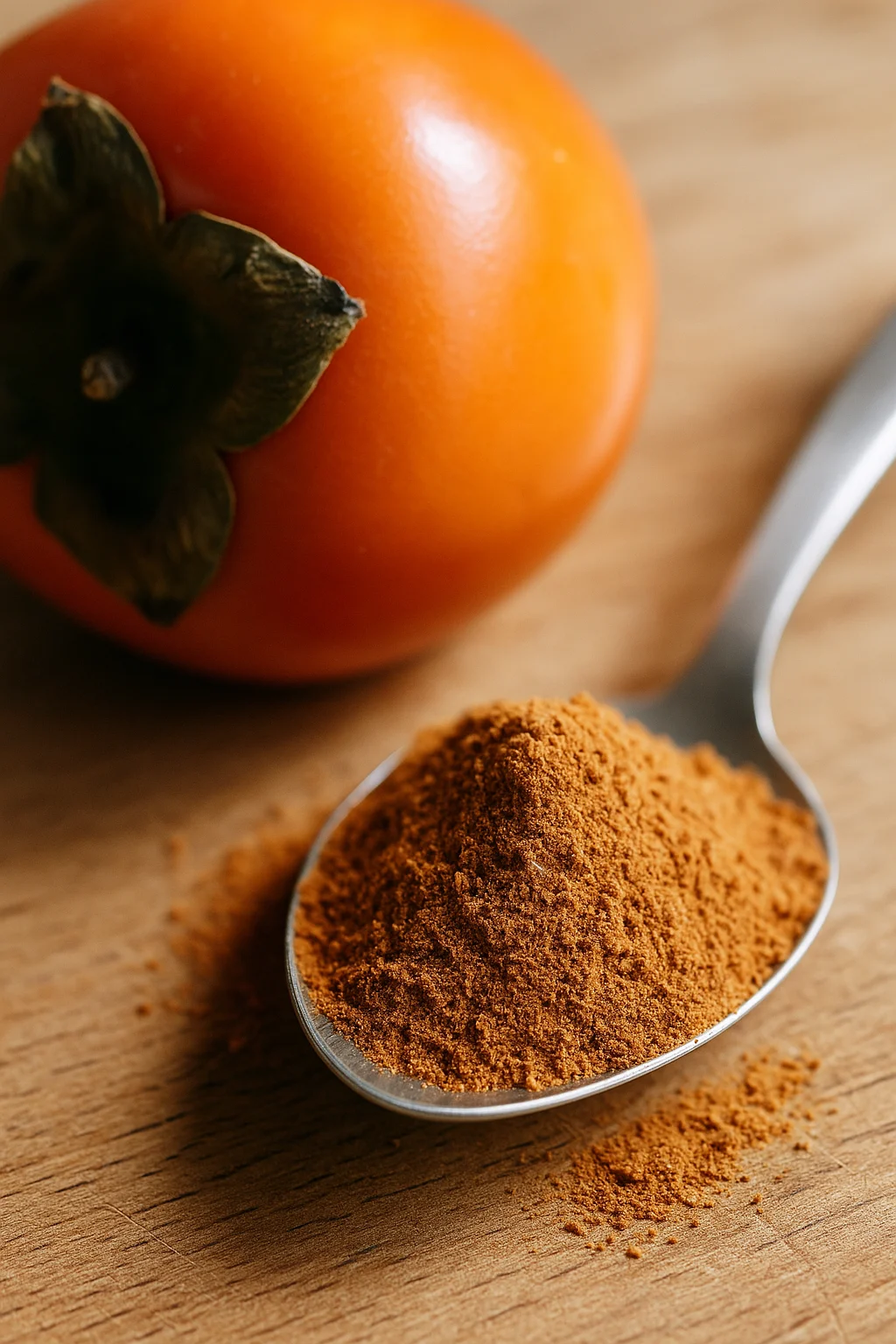
What are tannins and how they work
Tannins are viscous-flavored polyphenolic compounds that bind proteins, metals, and toxins. Persimmons are dominated by condensed tannins (proanthocyanidins), which:
-
protect the intestinal mucosa;
-
reduce oxidative stress;
-
help eliminate toxic substances from the digestive tract;
-
act as prebiotics, supporting the growth of beneficial microflora.
📌 In studies, persimmon tannins have shown the ability to reduce triglyceride levels and inhibit hepatic lipogenesis [1].
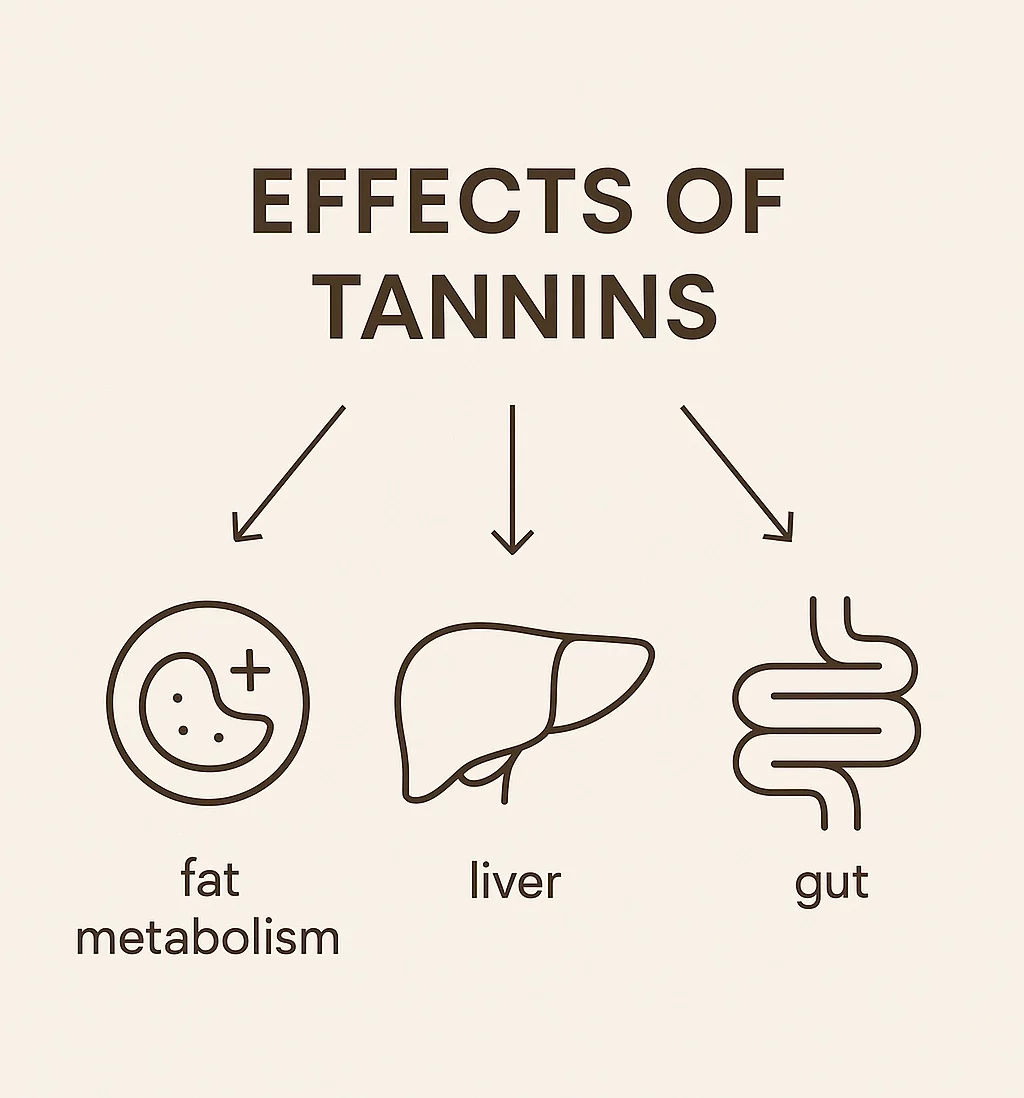
Persimmon extract as a functional ingredient
Persimmon extracts (especially the rind) are standardized for their content of tannins, flavonoids, gallic acid and punicalagins. They are included in:
-
antioxidant supplements;
-
weight management formulas;
-
post-biotic matrices (as in Vitafoods 2025).
Scientific evidence:
-
In a randomized trial [2], daily consumption of persimmon extract reduced LDL (“bad cholesterol”) levels by 10% over 4 weeks.
-
An improvement in insulin sensitivity was recorded.
Table 1 Main bioactive substances of persimmons
| Component | Action |
|---|---|
| Condensed tannins | Antioxidant, anti-inflammatory, toxin binding |
| Gallic acid | Antimicrobial, intestinal barrier support |
| Flavonoids | Antioxidant, cardioprotective action |
| Punicalagins | Liver protection, modulation of fat metabolism |
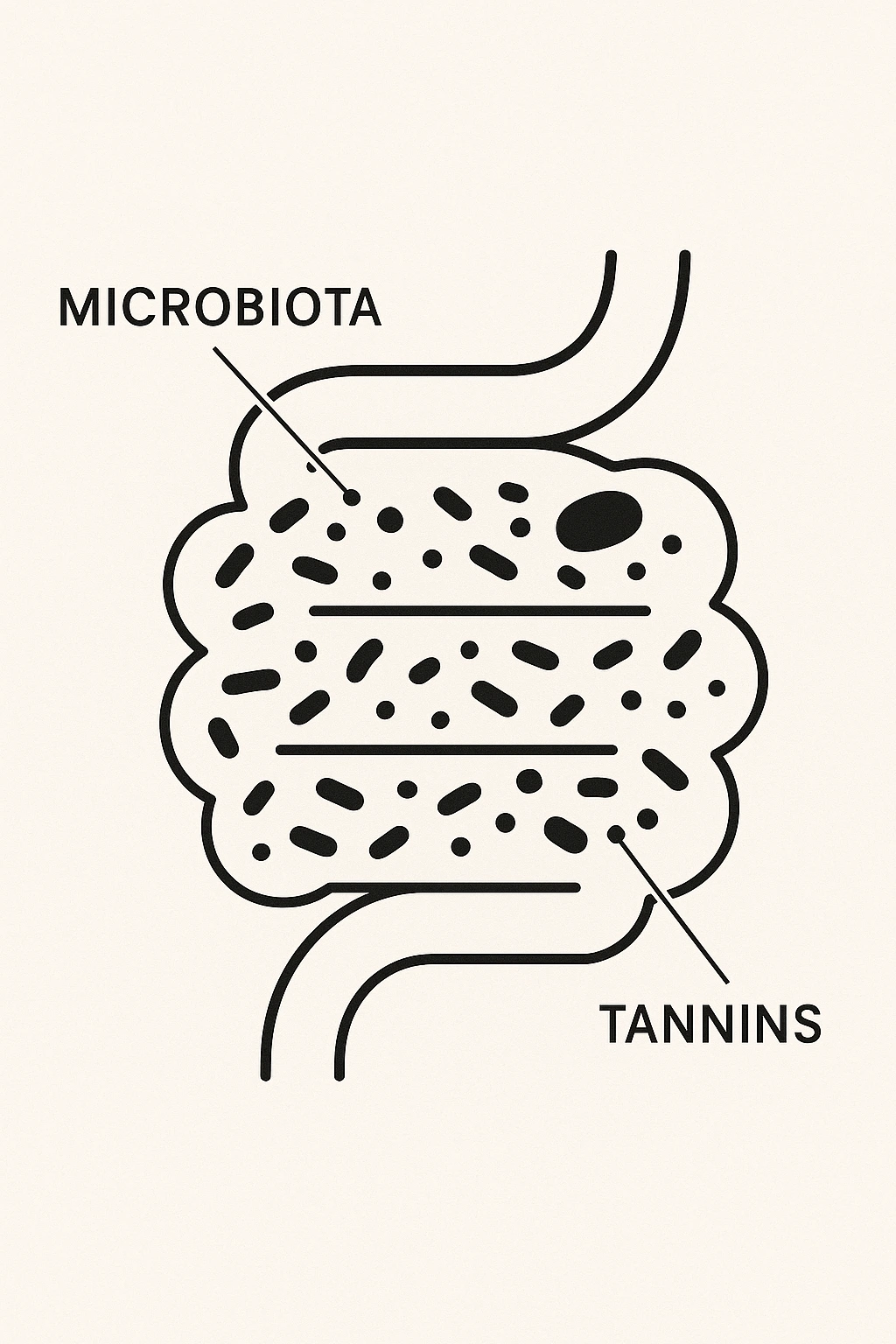
Fat metabolism: how persimmons intervene in the process
Persimmon polyphenols reduce fat accumulation in the liver, improve fat oxidation and inhibit lipid absorption in the intestine. According to Vitafoods, new delivery systems with encapsulated persimmon tannins that act in the large intestine without gastric irritation are noted in 2025.
Mechanism of action:
-
Decreased expression of genes related to lipogenesis (SREBP-1c).
-
Increase in β-oxidation of fats in mitochondria.
-
Activation of PPARα and suppression of fatty inflammation [3].
Table 2 Effect of persimmon extract on metabolic parameters
| Indicator | Change after 4 weeks of persimmon extract consumption |
|---|---|
| LDL level | ↓ by 10-15% |
| Body mass index (BMI) | ↓ by 1-2 units |
| Liver enzymes (ALT, AST) | Normalization |
| Insulin resistance (HOMA-IR) | ↓ up to 20% |
Detoxification and microbiome: double effect
Persimmon tannins not only bind toxins in the gastrointestinal tract, but also:
-
reduce the formation of ammonia in the large intestine;
-
stimulate the growth of beneficial bacteria (Bifidobacterium, Faecalibacterium);
-
reduce translocation of endotoxins across the intestinal barrier.
Also in combined symbiotics, persimmon acts as a prebiotic + sorbent – a trend presented at the Japanese and South Korean stands at Vitafoods 2025.
Who should use it and how
📌 Recommended as part of programs:
-
liver support for non-alcoholic steatohepatitis;
-
normalization of body weight;
-
recovery after poisoning or a course of antibiotics;
-
for athletes with oxidative stress.
Important: Not recommended for severe forms of gastritis due to possible astringent action.
Conclusions
Persimmon extracts and tannins are not just a traditional dietary component, but a scientifically validated functional ingredient with high potential. Their contribution to regulating lipid metabolism, protecting the microbiome and combating intoxication opens new horizons for the nutraceutical solutions of 2025.
Literature
-
Shibata M. et al. (2020). Effects of persimmon-derived tannins on lipid metabolism in mice. J. Nutr. Sci. Vitaminol.
-
Yamamoto T. et al. (2019). Randomized trial of a persimmon polyphenol supplement on LDL cholesterol. Nutr Res.
-
Ahn J. et al. (2021). Persimmon extracts modulate lipid metabolism via PPARα pathways. J. Functional Foods.
-
Vitafoods Europe 2025 Reports. Booth insights: Korea/Japan section.
-
EFSA Journal. (2023). Safety and efficacy of tannins as food supplements.



